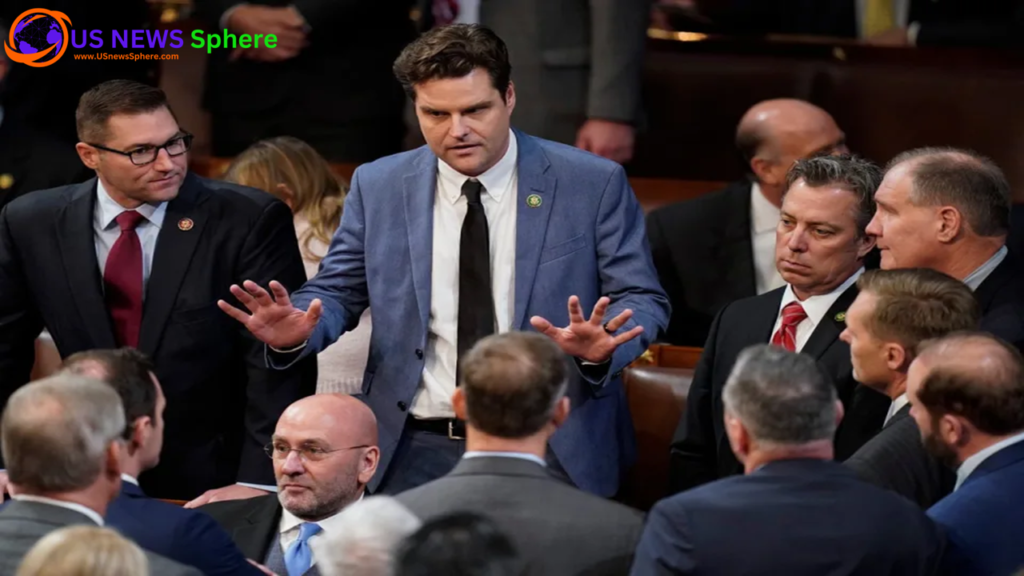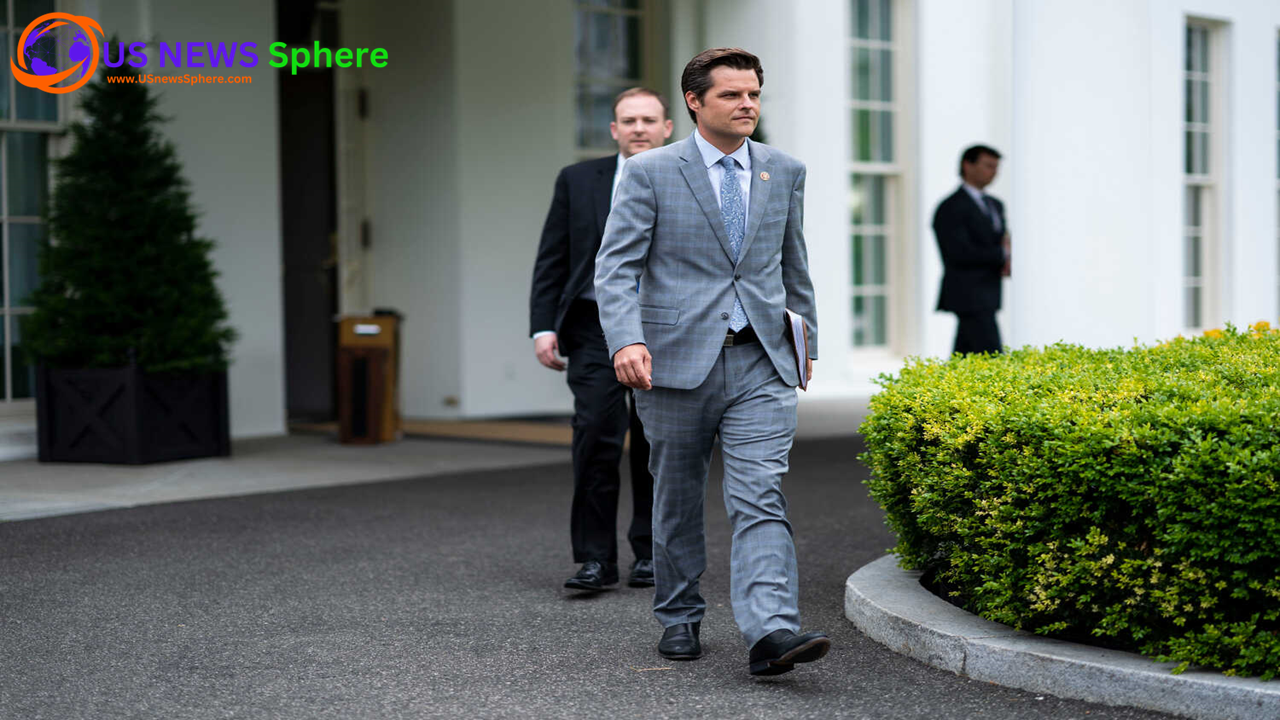As the House of Representatives teeters on the brink of a government shutdown, Representative Matt Gaetz of Florida emerges as a pivotal figure, leading the resistance against a stopgap measure. Gaetz, a Republican, has positioned himself as a thorn in the side of Speaker Kevin McCarthy, advocating for a different approach to government spending and challenging the leadership’s strategies.
Table of Contents

[Matt Gaetz’s demands include a committee to investigate FBI, as he calls McCarthy a ‘desperate guy’]
A Standoff in the Capitol
In a crucial meeting within the Capitol’s confines, Speaker McCarthy proposed a potential resolution to the ongoing spending dispute. However, Gaetz, known for his confrontational stance, declared his and seven other members’ opposition to any interim measure to prevent the shutdown on October 1. This revelation stirred discontent, even among the ultraconservative House Freedom Caucus.
Gaetz’s Growing Influence
Post-meeting, Gaetz’s influence became more apparent as McCarthy sought insight into the list of opposing members. Gaetz’s confidence in his faction’s steadfastness was evident, and his influence seemed to be expanding, positioning him as a significant player in the House’s dynamics.
The Path Forward
Despite the looming shutdown, Gaetz is advocating for the debate of individual spending bills, sidelining the immediate need for a temporary funding solution. His stance against short-term funding bills reflects a commitment made by McCarthy, adding another layer to their ongoing rivalry.
McCarthy’s Struggle for Control
Gaetz’s assertive speeches and actions have highlighted McCarthy’s challenges in uniting Republicans and fulfilling promises made to the far right. The tension between the two has escalated, with Gaetz threatening motions to remove McCarthy from the speakership.
Heading 5: The Trump Factor
Former President Donald J. Trump’s support for Gaetz’s stance against temporary spending has bolstered the opposition, adding weight to Gaetz’s influence. Trump’s intervention has potentially swayed undecided members, marking a significant turn of events.
The Shutdown Dilemma
Gaetz sees a potential government shutdown as a necessary step to curb Washington’s spending habits. While not advocating for prolonged disruption, he believes a “mini shutdown” could instigate change, despite the uncertainties and potential repercussions.
Uncertain Endgame
Gaetz’s ultimate goal remains unclear, especially considering the Democrats’ control over the Senate and the White House. The possibility of a prolonged shutdown and its impact on both the government and the public raises questions about the feasibility of Gaetz’s approach.
The Remaining Resistance
With many lawmakers having left town, Gaetz scrambles to consolidate support among those still present. The divergent strategies of right-wing Republicans highlight the fragmented state of the party and the challenges ahead.
Representative Matt Gaetz’s rise as a key opposition figure has intensified the standoff in the House, with a government shutdown looming ever closer. The unfolding events underscore the internal struggles within the Republican party and the uncertainties surrounding the future of government spending and leadership dynamics.





